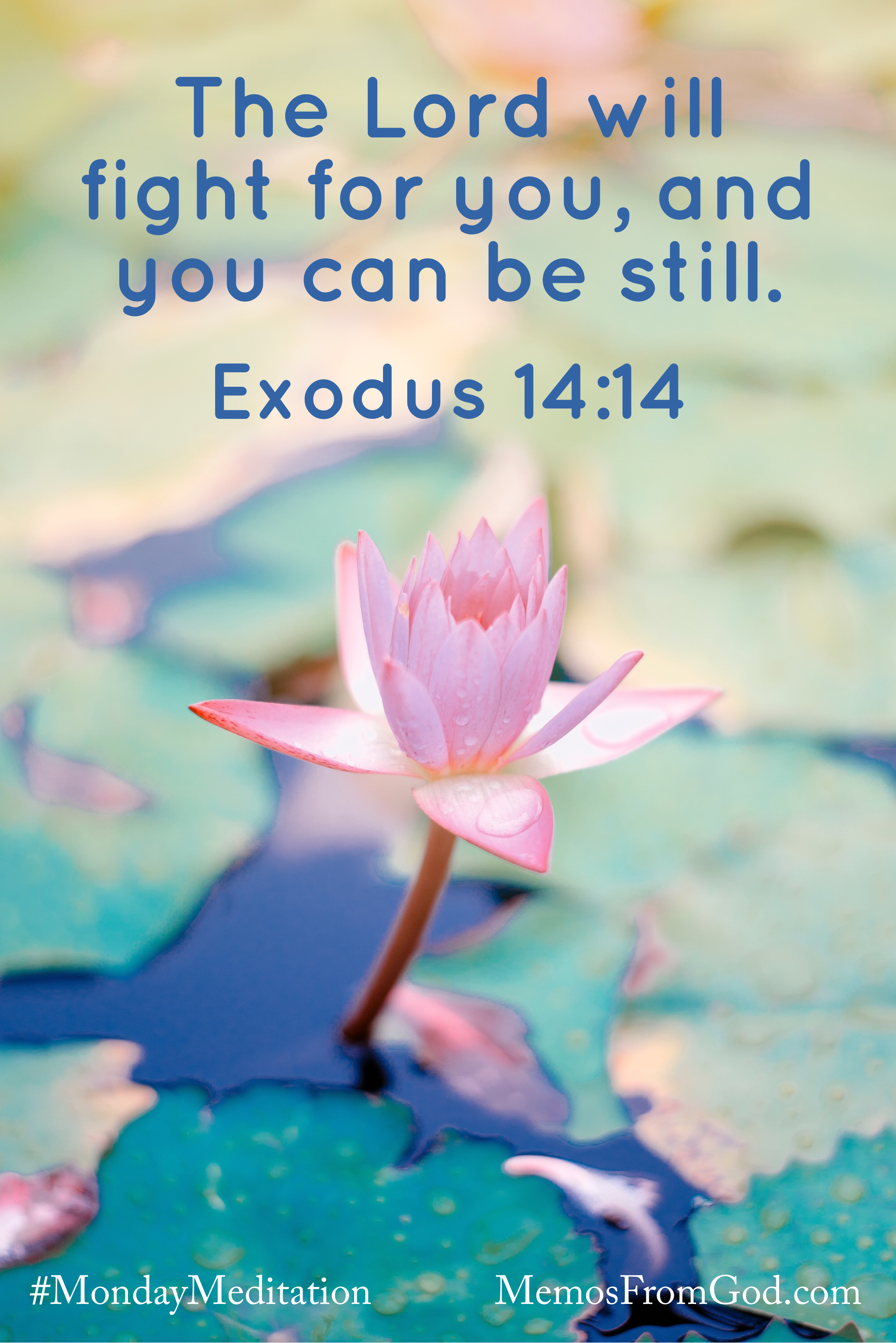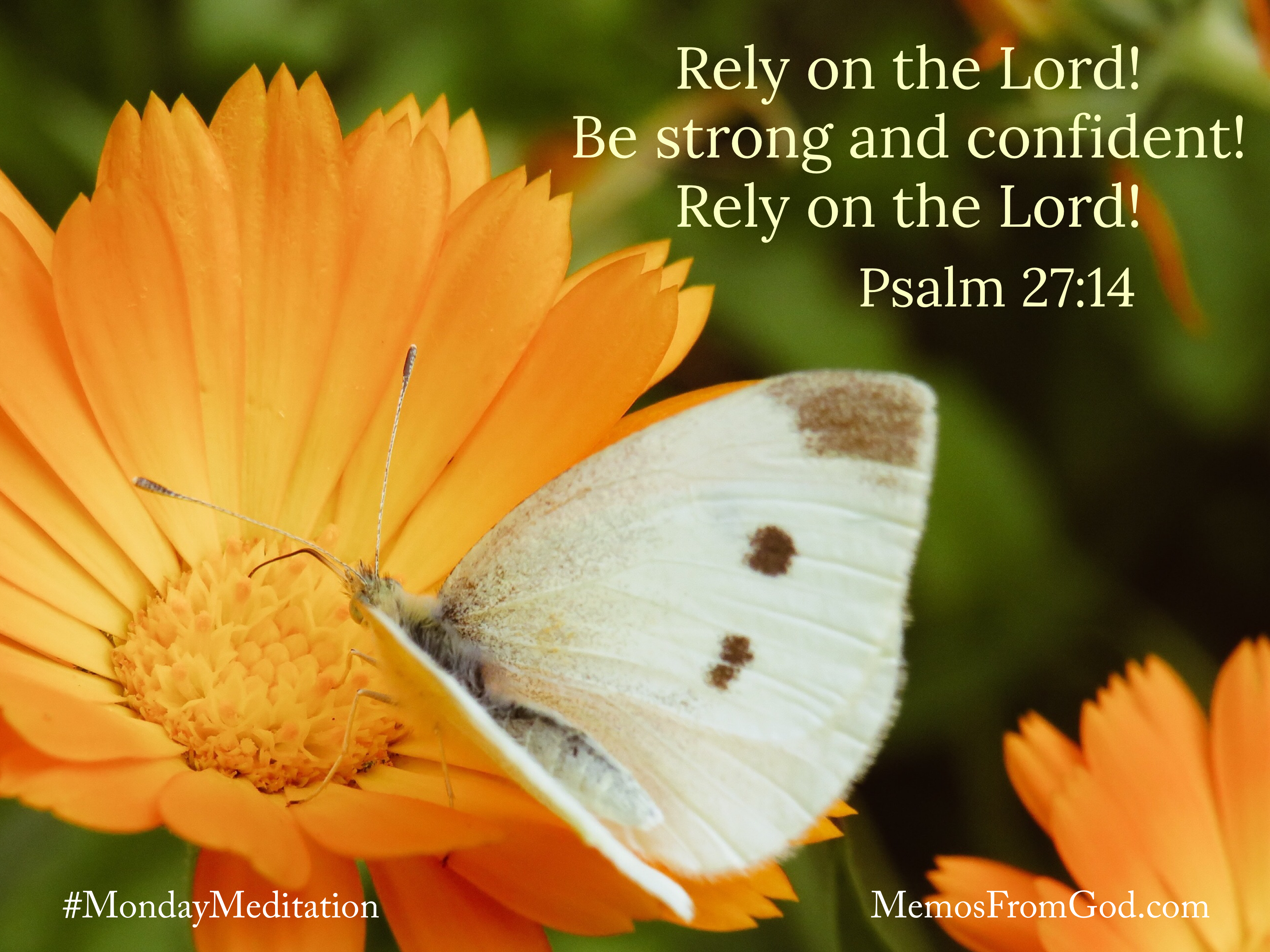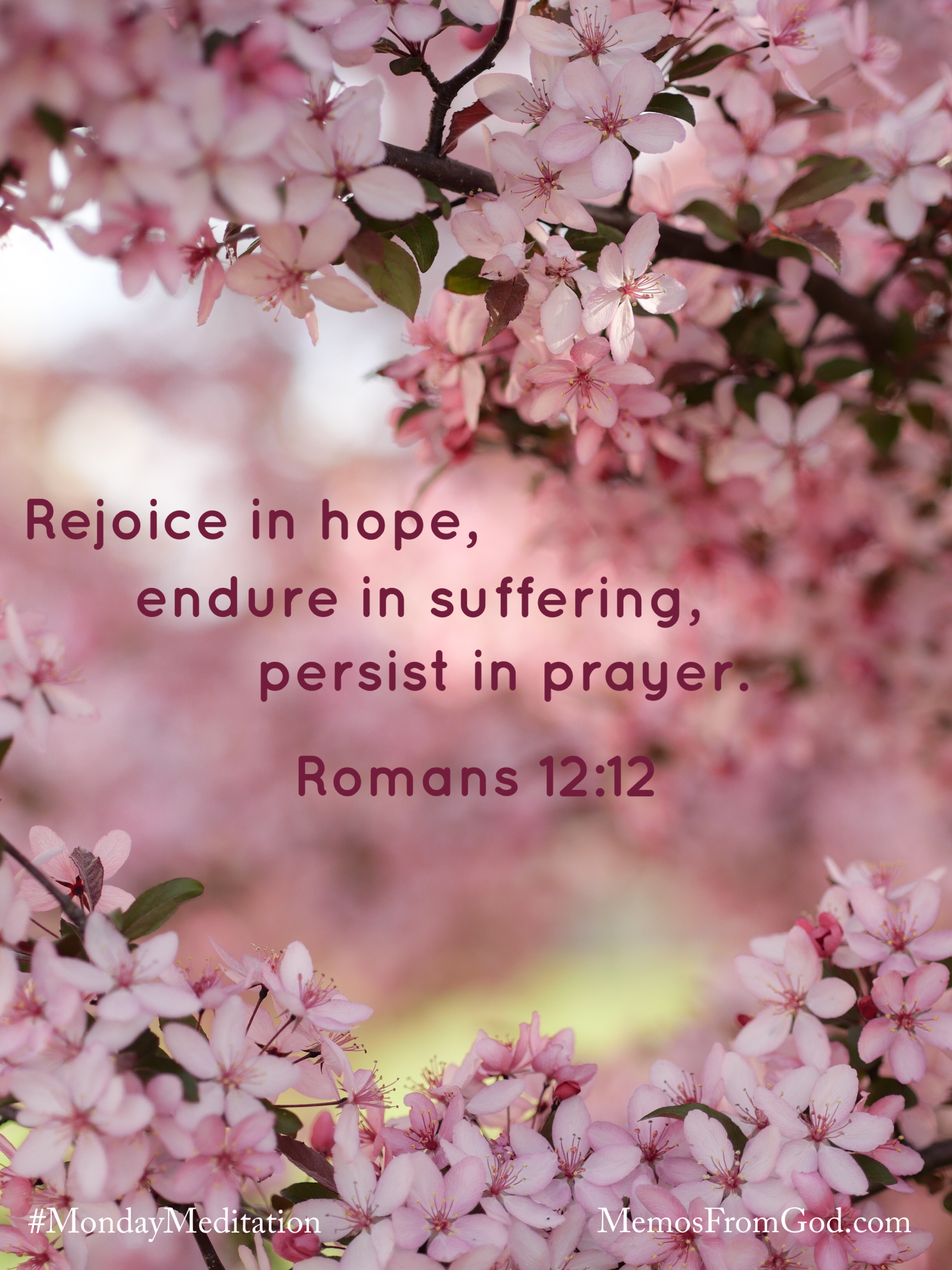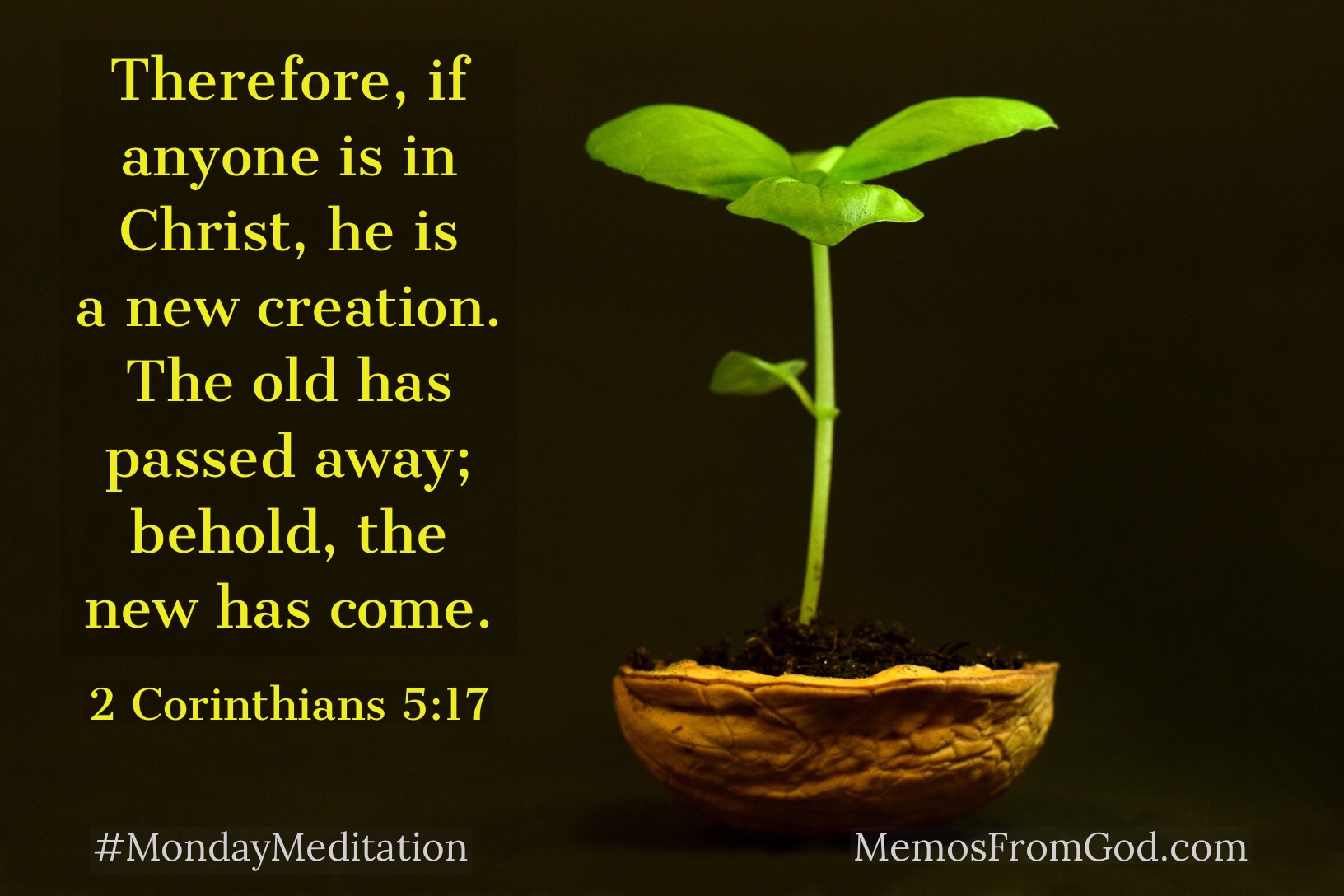

Attempting to Understand the Bible





Today we begin a new theme for #MondayMeditation—hope. In challenging times, which this year has certainly been for most people, sometimes hope is all we have to hold on to. If that is true for you, I pray you won’t lose hope, and I pray the verses that I share will be an encouragement to you.



It is not the flip of a calendar page that makes things new. It is Jesus.
I wish you all good things in 2019.

Long-time readers of this blog will know that Rusty Wright has contributed many articles to it over the years. Some have been co-written by his wife Meg Korpi. I was very sad to learn that Meg has passed away after suffering with cancer for the last few years. Today's post is a tribute to her, written by Rusty, and shared with permission.
---------

Recently, when my wife, Meg Korpi, was dying of cancer, a longtime friend offered some advice I'm really glad I heeded.
"Hutch" Hutchins told me I should write a tribute, expressing what she's meant to me and how much I love her. I should frame it, give it to her, and read it to her personally.
Meg was on home hospice care after a three-and-a-half-year struggle with ovarian cancer. I was her primary caregiver – a demanding, 24/7 responsibility – and was reeling with exhaustion. But his advice clicked. I read the tribute to her on May 21, our 16th anniversary.
It had a very positive effect…calming, soothing. She seemed at peace, contented, with brightened spirits. It was one of her last lucid days before dying a month later.
Tribute to a rare jewel
Meg was a rare jewel. In her wedding vows, she had said she wanted me to feel like "the most blessed man alive to be married to" her. I did. In this tribute, I told her that in her, God gave me:
• A gorgeous bundle of fun, adventure, character, and faith
• A godly woman who walks closely with Him
• A faithful friend – my very best friend – and companion
• A keen mind to help me think through life's sometimes perplexing issues
• A wise counselor with sound advice at crucial junctures
• A determined spirit to prompt me to reconsider my course when needed
• A sweet lover (Whew!)
• A fun woman, whose sense of humor brings delight. I love to laugh with you!
Thank you so, so much for loving me unconditionally; for honoring and respecting me; for caring and encouraging; for listening to my heart; for sharing my joys and hurts; for looking out for my interests; for being there through good times and bad; for facing life with me as long as we both shall live.
I love you very much, and am eternally grateful to be your husband.
* * *
Lots of laughter
We loved to laugh. As world travelers, sometimes we laughed about language translation complexities.
60 Minutes television veteran Mike Wallace, speaking through an interpreter, once asked former Russian president Boris Yeltsin if he weren't being a bit "thin skinned" in his sensitivity to media criticism. The interpreter goofed, telling Yeltsin that Wallace had said, "You are a thick-skinned hippopotamus."
Shortly after we married, a speaker at a Miami meeting I attended told of efforts to translate a biblical love poem into the language of a Kenyan tribe. The phrase, "Your beauty is like that of the lily," did not connect with the rural East Africans, for whom lilies were mere cattle fodder. Their culture highly esteemed the cow, not the flower. On the advice of tribesmen, the translators rendered the romantic phrase: "You are a black cow in a herd of spotted cattle."
The speaker relating this tale suggested I use that compliment on my new bride, without explanation. Since Meg was returning to California from Philadelphia that evening, I left the cryptic greeting on our home answering machine. A few hours later, my Miami phone rang. Her first words: "And you are a thick-skinned hippopotamus!"
Most important lesson
At her memorial celebration, I presented all this, then briefly noted a conviction we shared deeply, the most important thing I’ve ever learned. I'm indebted in many ways to my Jewish friends and their heritage for it.
One ancient Hebrew book describes Job, who, despite his slew of troubles, affirmed, "I know that my Redeemer lives." (Job 19:25) That gave him hope.
A skeptic in my youth, I didn't believe my Redeemer lived. I thought it was a fairy tale. Then, my first year at Duke, I heard a lecture about Jesus' Resurrection evidences, given by Bob Prall, who later became my mentor. Jesus was executed and declared dead, wrapped like a mummy, placed in a tomb. A huge stone covered the tomb's entrance, which Roman soldiers guarded. Most of his disciples fled in fear.
Sunday morning, the stone was rolled away, the tomb was empty, but the grave clothes were still in place. Jesus appeared alive. Frightened disciples became martyrs because they believed he had risen.
Attempts to explain this away didn't work for me. The guard was too powerful, the stone too heavy, the disciples too timid. I realized it was true. Jesus had successfully predicted his own Resurrection. If I could trust him in areas like this where I could test him, I had grounds for trusting him in areas where I couldn't test him, such as eternal life and how to obtain it. He said, "I am the resurrection and the life. The one who believes in me will live, even though they die." (John 11:25)
Comforting? True?
Is it comforting to me that I'll see Meg again and spend eternity with God? Absolutely. But it's only comforting because I believe the evidence indicates it's also true. If it weren't true, it wouldn't be comforting.
I realize this is a controversial subject, and you may not agree. If you've not examined the Resurrection evidences, may Meg and I gently and politely encourage you to take a look? Lots of good books and websites present them. Our own site – which Meg designed and built – also presents them. RustyWright.com
We know our Redeemer lives. We hope you can as well.
And…I love you, Sweetheart.
* * *
You can visit Lasting Memories for more on this remarkable woman, including a lovely 5½ - minute memorial presentation of Meg's life (images and music; put together by several family members).
Rusty Wright is an author and lecturer who has spoken on six continents. He holds Bachelor of Science (psychology) and Master of Theology degrees from Duke and Oxford universities, respectively. www.RustyWright.com
In my post of June 19, 2014, I began to look at I Peter 3:15, for insight into how to respond to the persecution we receive because of our faith. Depending where we are in the world, and who is doing the persecuting, the challenges we face because of our faith can vary widely, but our response should always be the same. In my last post, I discussed the first and most important part of that response which is to turn to God. No matter what we face, we should always turn to God first for the answers.
The second half of I Peter 3:15, along with I Peter 3:16 give us the second part of our action plan. I’m afraid that many of us don’t do this part very well either, and I pray that as you read this you will really consider how to implement it in your own situations. The instruction in the rest of the passage is to always be ready to explain why we believe as we do, and to do it with courtesy and respect so that there is no basis for any accusations against us.
Let’s break it down piece by piece.
Always be ready to give an answer:
Be prepared. Think about it now, so that when you are asked, you have the words to express what you really want to express. Why do you believe as you do? Anticipate the questions that someone might ask, and have your answer ready.
To anyone who asks:
Do you understand the implication of this phrase? We should be living in a way that makes others realize that we are different, and makes them wonder why. When they wonder, eventually, when they feel comfortable in their relationship with us, they will ask. Why do you do this? Why don’t you do that? Why don’t you get angry? Why don’t you get revenge? The things that you do or don’t do that are different from the way the world does them, that’s what you need to prepare your answers about.
About the hope you possess:
Ultimately, the reason for your specific actions and reactions is the hope that you have in God, the confident expectation we have that God will fulfill His promises to us. We need to be ready to explain Christianity in general, but specifically the assurance we have that Christ is able and willing to return and to provide us with eternal life.
Yet do it with courtesy and respect:
It is not our job to bully the bullies. We should not yell and scream nor be rude, sarcastic or offensive. We certainly shouldn’t be physically attacking anyone. If possible, so far as it depends on you, live at peace with all people. (Romans 12:18) It is not our job to change their minds about God, only to give an answer for why we believe. It is the Holy Spirit who will change their hearts when the time is right. Look at what happened to Saul, the persecutor, in Acts 9:1-9. God has the power to redeem.
Keeping a good conscience, so that those who slander your good conduct in Christ may be put to shame when they accuse you:
In Romans 12:17, just before the verse about doing everything you can to live at peace with everyone, Paul tells us not to repay evil for evil. No matter what someone else does, it is your responsibility to make sure that your actions are right. In the end we will all have to answer to God. We want to be righteous as we stand before Him on the day of judgement. (II Peter 2:9)
I do not want to discourage you from taking up the fight against injustice or the persecution of our brothers and sisters in Christ. In fact, I want to encourage you to do so. But please, be careful of your words and your actions. Rely on Christ, put Him first in your life, and always strive to please Him. The best way to do that is to love Him and to love others. (Matthew 22:37-39)